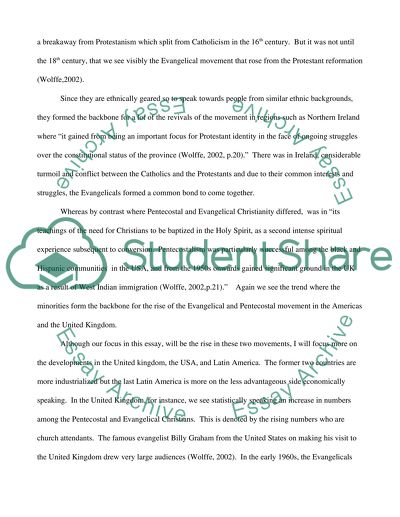Cite this document
(“Evangelical and Pentecostal Christianity Essay Example | Topics and Well Written Essays - 2000 words”, n.d.)
Evangelical and Pentecostal Christianity Essay Example | Topics and Well Written Essays - 2000 words. Retrieved from https://studentshare.org/religion-and-theology/1528151-evangelical-and-pentecostal-christianity
Evangelical and Pentecostal Christianity Essay Example | Topics and Well Written Essays - 2000 words. Retrieved from https://studentshare.org/religion-and-theology/1528151-evangelical-and-pentecostal-christianity
(Evangelical and Pentecostal Christianity Essay Example | Topics and Well Written Essays - 2000 Words)
Evangelical and Pentecostal Christianity Essay Example | Topics and Well Written Essays - 2000 Words. https://studentshare.org/religion-and-theology/1528151-evangelical-and-pentecostal-christianity.
Evangelical and Pentecostal Christianity Essay Example | Topics and Well Written Essays - 2000 Words. https://studentshare.org/religion-and-theology/1528151-evangelical-and-pentecostal-christianity.
“Evangelical and Pentecostal Christianity Essay Example | Topics and Well Written Essays - 2000 Words”, n.d. https://studentshare.org/religion-and-theology/1528151-evangelical-and-pentecostal-christianity.


